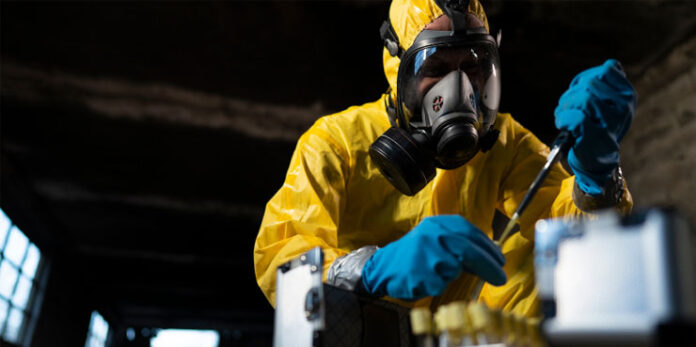As part of state regulations and general good manufacturing practices, many cannabis manufacturers test their products for contaminants such as mycotoxins, heavy metals and pesticides. But one group of substances have been flying under the radar, and they can cause some serious damage to consumers.
Synthetic compounds known as per- and polyfluoroalkyl substances (PFAS) are found in public water supplies across the U.S. There are about 15,000 different chemical compounds that fall under the PFAS umbrella.
PFAS Can Cause Harm to Consumers
Ethan Feldman, Associate, Duane Morris, says PFAS have been linked to various forms of cancer and birth defects. “They make their way into final products, which are eventually ingested, and the buildup of PFAS in a consumer’s bloodstream can lead to cancer,” he says.
While research is ongoing to understand the mechanisms of PFAS toxicity, the epidemiological evidence suggests associations between increases in exposure to (specific) PFAS and certain health effects. According to the Agency for Toxic Substances and Disease Registry, these health effects can include:
- Increases in cholesterol levels
- Changes in liver enzymes
- Small decreases in birth weight
- Lower antibody response to some vaccines
- Pregnancy-induced hypertension and preeclampsia
- Kidney and testicular cancer
According to the Centers for Disease Control, exposure to PFAS can occur from eating food packaged in PFAS-containing material, eating food grown or raised near places that used or made PFAS and, most significantly, from drinking water. It is estimated that drinking water for 26 million U.S. citizens may be contaminated with PFAS.

PFAS Contamination Resulting in Litigation Risks
Since PFAS are found in water all across the U.S., there is a chance that they could be introduced to the soil in which cannabis plants grow, and possibly even the finished product if manufacturers are not careful.
“That’s really where there’s a significant concern,” explains Seth Goldberg, Partner and Cannabis Industry Group Co-Team Lead at Duane Morris. “PFAS that end up in consumer goods, such as cannabis, is a huge safety risk. And now we’re seeing corresponding litigation risks with PFAS where they have been subject to a growing number of product liability and consumer class action matters.”
The past few years have seen many lawsuits filed by attorneys general and private citizens against PFAS manufacturers stemming from public water supply contamination. Additionally, over the past few years, the Environmental Protection Agency (EPA) has worked to establish uniform permissible PFAS levels as it pertains to public water supplies.
“An area that’s been popular from the plaintiff’s standpoint are claims that cannabis products don’t have the proper labeling with respect to THC potency, or they are mislabeled in some way,” Goldberg notes. “So we know that plaintiffs view the cannabis industry as another place to bring consumer-related litigation to, so manufacturers need to recognize that PFAS are a potential litigation risk from a consumer standpoint.”
Preventing Against PFAS Contamination
One of the best ways to prevent cannabis products from being contaminated is to test the water for PFAS, according to Feldman. He also advises that manufacturers start to develop standard operating procedures (SOPs) for them to follow when dealing with public water supply.
“The good news here is that the cannabis industry is already regulated and many manufacturers are used to testing their products, so screening for PFAS is something that can easily be added into the mix.”
Cannabis manufacturers must be vigilant in complying with not only state regulations pertaining to cannabis manufacturing, but also to appropriately handling PFAS contaminated water. This can help to keep consumers safe and prevent possible litigation.










